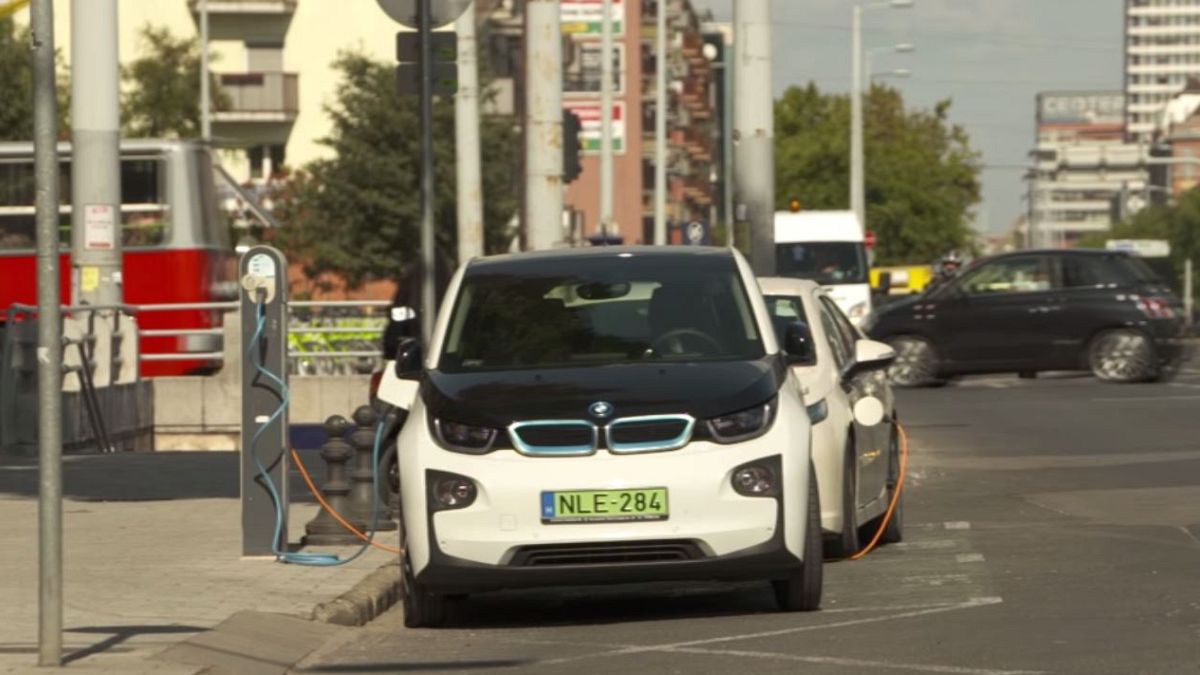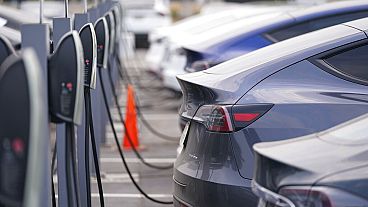Hungary has just announced plans to subsidise electric cars, but at the same time is blocking the installation of new wind turbines.
Hungary’s environmental agenda has taken one step forward and one step back.
The government just announced plans to subsidise electric cars, but at the same time is blocking the installation of new wind turbines.
It will give a grant of up to 21 percent of the purchase price of a electric car aiming to get 30,000 on the roads by 2020.
István Lepsényi, Hungary’s Under-Secretary for Economic Development and Regulation, explained: “What we expect is that this will boost electro mobility, so there will be more and more electric cars, emission-free cars, driven in Budapest and other cities.”
Euronews Budapest business correspondent Beatrix Asboth reports: “To protect the environment, the Hungarian government plans to install 3,000 public electric charging stations. To promote the use of electric vehicles, they have simplified the regulations and introduced some tax relief. On the other hand you will have to pay an additional environmental impact tax on solar panels and a new ruling basically bans the building of new wind turbines.”
The law which just came into force means no wind turbines can be set up within 12 kilometres of populated areas.
The environmental pressure group Energiaklub says Hungary is making some progress towards its goals:
Their technical director Orsolya Fülöp told Euronews: “Hungary has agreed that by 2020, 13 percent of the country energy will come from renewables. Right now we are at around 10 percent, which is quite a good proportion, but actually most if that is from burning wood, which is not exactly a very modern way.”
The National Development Ministry defended the wind farm ban by saying it not an efficient way of generating power in Hungary, which lacks the facilities to store the electricity from turbines operating mostly at night when demand is low.



